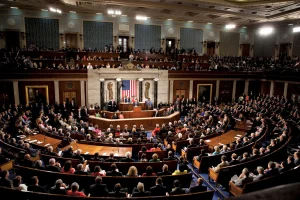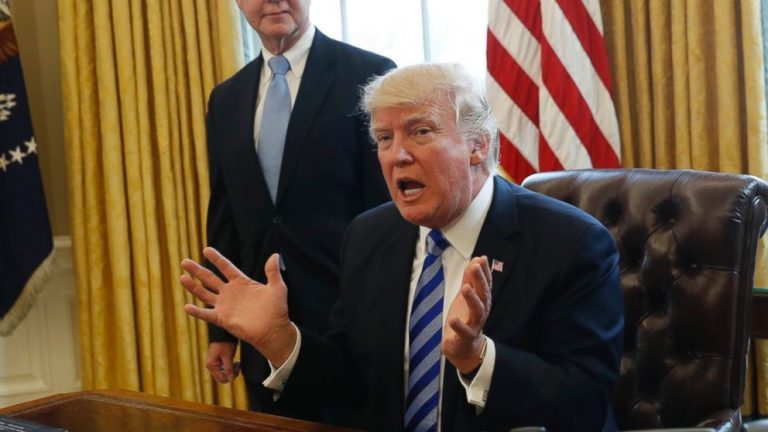A major transparency push in Washington moved one step closer to becoming law this week, but not without raising new concerns about what the public will — and will not — be allowed to see. As the Senate unanimously approved the long-awaited Epstein Files Transparency Act, attention quickly shifted to a little-discussed element in the legislation that critics say could keep some of the most revealing material out of public view.
With President Donald Trump preparing to sign the bill, the countdown to the release of Epstein’s files has begun — but so has the scrutiny.
A Rare Unanimous Vote Sends Epstein Bill to Trump’s Desk
In a remarkable show of bipartisanship, the Senate passed the Epstein Files Transparency Act by unanimous consent, sending the measure directly to the president.
The bill, co-sponsored by Rep. Thomas Massie (R-KY) and Rep. Ro Khanna (D-CA), requires the Department of Justice to release “all unclassified records, documents, communications, and investigative materials” tied to Jeffrey Epstein, his network, and his criminal operations.
The files must be published:
-
Within 30 days of Trump’s signature
-
Online in searchable, downloadable format
-
With only minimal redactions to protect victims’ identities
Senate Majority Leader John Thune and Minority Leader Chuck Schumer fast-tracked the bill, avoiding amendments to ensure the House version remained intact.
Schumer made the stakes clear:
“Any amendment would force this bill back to the House and risk delay. Who knows what would happen over there?”
No Republican senator objected.
https://twitter.com/timburchett/status/1990970627327721708
House Drift and Leadership Roadblocks Force a Radical Move
Although the Senate breezed through the measure, the bill faced months of resistance in the House.
Speaker Mike Johnson attempted to stall or revise the legislation, citing worries about:
-
Ongoing criminal investigations
-
Privacy concerns
-
Potential backlash from future disclosures
But lawmakers used a rare procedural tool — a discharge petition — to bypass leadership and force a floor vote. The bill passed overwhelmingly.
For many members, bipartisan pressure for transparency outweighed internal party politics.
Trump Reverses Position: “We Have Nothing to Hide”
The bill’s momentum surged after Trump abruptly changed course Sunday night.
For months, he opposed releasing Epstein files, calling the probe a politically motivated plot by Democrats. But in a Truth Social post, he encouraged House Republicans to “vote yes,” declaring:
“We have nothing to hide.”
On Monday he doubled down:
“Sure I would [sign it]. The Democrats were Epstein’s friends — all of them. It’s a hoax, the whole thing is a hoax. But I’ll sign it.”
The reversal stunned both allies and critics, but GOP lawmakers immediately fell in line.
Inside the Bill’s Most Controversial Clause: “Unclassified Only”
Despite its broad transparency mandate, the bill contains one limitation drawing increasing attention:
🔹 Only unclassified records will be released.
That means:
-
The DOJ can withhold classified FBI documents
-
Intelligence community files may remain sealed
-
National security justifications can prevent disclosure
-
Sensitive communications with foreign intelligence services may stay hidden
-
Some grand jury material may never reach the public
For critics, this is the “secret clause” that could drastically reduce what Americans learn about Epstein’s political, financial, and global network.
Conservative commentator Brian McNally blasted the bill:
“Disgusting is the wording in the bill that only releases unclassified records. Today was political theater.”
Transparency experts say the limitation leaves room for political maneuvering — particularly in cases where high-profile individuals are involved.
What the DOJ Must Release: Thousands of Pages of Records
Even with classification restrictions, the volume of required disclosure will be massive.
Expected release categories include:
-
FBI summary reports
-
Witness statements
-
Email chains
-
Seized communications
-
Financial transfer records
-
Travel logs
-
Meeting schedules
-
Subpoenaed documents
-
Correspondence with Epstein associates
Many individuals named in prior civil filings or previously sealed depositions may reappear.
Names of victims and sensitive personal details will be redacted.
Republicans Accuse Democrats of “Selective Leaking”
The bill’s passage follows weeks of heightened tension in the investigation. A House Oversight Committee memo released by Republicans accused Democrats of strategically leaking partial Epstein-related emails to politically damage Trump.
The memo stated:
“Oversight Committee Democrats… intentionally mischaracterized witness testimony and selectively released information with targeted redactions in an effort to create another hoax involving President Trump.”
Republicans emphasized that none of the 23,000 documents reviewed by the committee implicated Trump in Epstein’s crimes.
They also accused Democrats of concealing exculpatory evidence, including statements from Virginia Giuffre — who publicly said she never witnessed misconduct by Trump.
Meanwhile, Plaskett Controversy Still Roils Washington
The push for transparency intensified after documents showed Delegate Stacey Plaskett (D-VI) exchanged messages with Epstein during a 2019 congressional hearing involving Michael Cohen.
Plaskett admitted the communication during a CNN interview but insisted it was part of her effort to “get at the truth.” She narrowly avoided censure Tuesday night in a 214–209 vote.
Her involvement has caused major political fallout:
-
Republicans accuse her of improper coordination
-
Democrats accuse the GOP of weaponizing old communications
-
Investigators continue examining her historical ties to Epstein’s operations
The issue is almost certain to resurface once the DOJ begins releasing the first wave of records.
Senate Leaders: America Wants Answers
Senate Majority Leader John Thune said the unanimous vote reflected “clear bipartisan consensus” on the need for disclosure.
Thune predicted the bill would pass easily:
“It’s the kind of thing that could move without objection.”
Sen. Schumer echoed the urgency:
“It should pass as written and without a hint of delay.”
Both leaders — often at odds — aligned firmly on this issue.
What Happens Once Trump Signs: The Countdown Begins
After Trump’s signature:
-
Day 1: The clock starts
-
Day 30: DOJ must publish the first batch of files
-
Late December: Estimated release date for initial documents
-
Early 2026: Additional files expected
The scale of the release will be unprecedented.
Officials expect the most sensitive revelations to emerge in stages, as journalists, legal experts, and the public analyze the material.
Investigations, lawsuits, and political battles are almost guaranteed to follow.
A Transparency Push Decades in the Making
Jeffrey Epstein’s influence network has long been shrouded in secrecy, from Wall Street to Washington to the international elite. The upcoming document release may expose:
-
High-profile names previously undisclosed
-
Financial connections facilitating trafficking networks
-
Possible prosecutorial failures
-
Intelligence ties
-
Political favoritism or cover-ups
For both parties, the fallout could be unpredictable — and potentially explosive.
As one senior GOP aide put it:
“It’s about time Americans see who was involved and how deep this went.”

Sarah Mitchell is a bestselling novelist recognized for her insightful and emotionally resonant stories that explore the complexities of human relationships. Originally from Denver, Colorado, Sarah grew up in a family of teachers who nurtured her curiosity and love for storytelling. She studied psychology at Stanford University, where she became fascinated by the intricacies of human behavior—an interest that would later shape her writing career. Sarah’s novels are praised for their nuanced characters, intricate plots, and ability to capture the subtle tensions that define love, friendship, and family ties. Her breakthrough novel, The Spaces Between Us, became an instant bestseller, lauded for its honest portrayal of strained family relationships and the fragile bonds that hold people together. Since then, she has published several works that continue to captivate audiences around the world. Outside of her writing career, Sarah is passionate about mental health advocacy and often partners with organizations to promote awareness and support for those struggling with emotional well-being. Her personal life is quieter—she enjoys hiking in the Colorado mountains, practicing yoga, and spending time with close friends. With each new book, Sarah Mitchell cements her reputation as a writer who illuminates the beauty and struggles of human connection.









